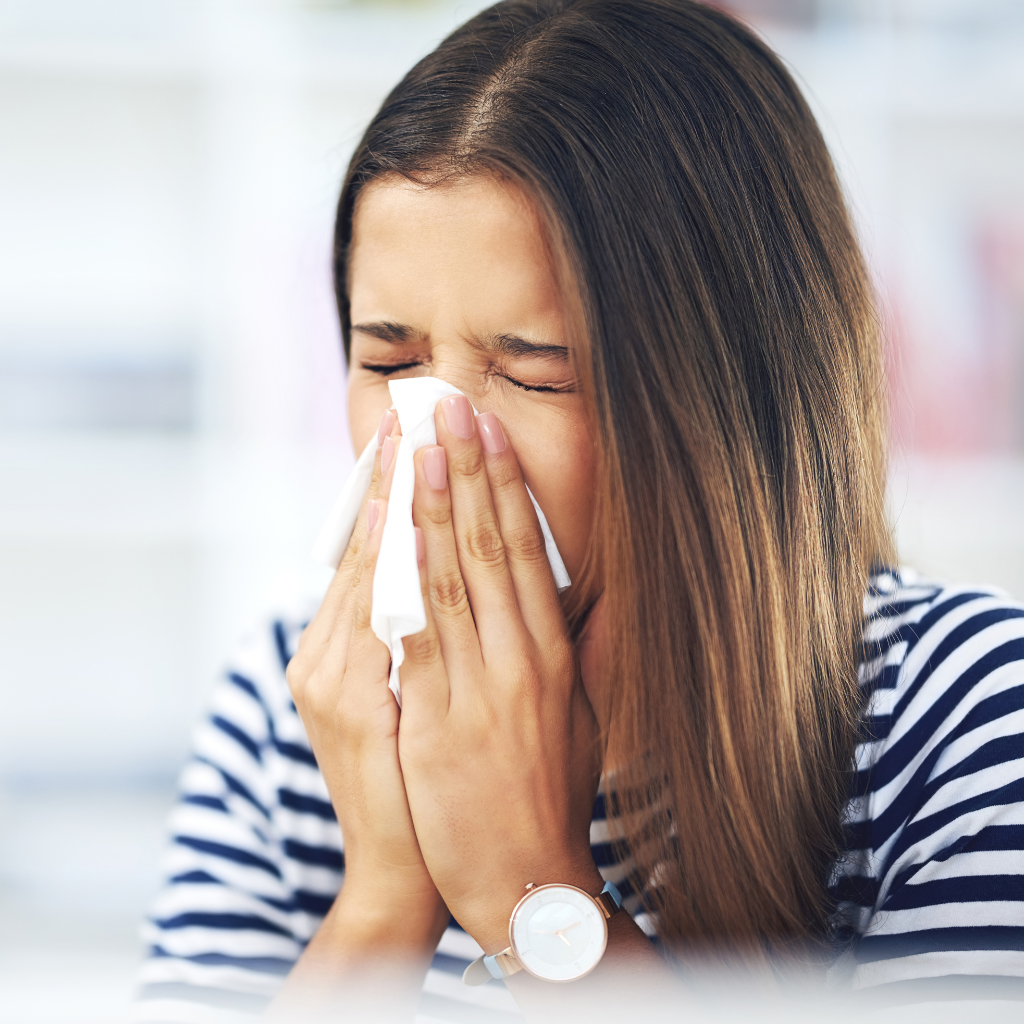Surviving Allergy Season: Your Guide To Navigating Pollen Peaks Across Cumming and NE Georgia
Introduction
As we proceed through the fall months, the residents of Cumming, Georgia, and the surrounding areas in Northeast Georgia eagerly welcome the cooler weather after such a long hot summer. However, with the change in seasons comes a less welcome guest: allergy season. The vibrant pollen and ragweed peaks of this region can wreak havoc on those prone to allergies, making it essential to be prepared. In this comprehensive guide, we will explore everything you need to know about surviving allergy season in Cumming and Northeast Georgia.
Understanding Allergies
Before delving into the specifics of allergy season in Cumming and Northeast Georgia, it’s essential to understand the basics of allergies. Allergies occur when your immune system reacts to a substance that is typically harmless. In the case of seasonal allergies, the primary culprits are pollen grains from trees, grasses, and weeds.
Allergy Season in Cumming and Northeast Georgia
Cumming and the Northeast Georgia region experience allergy season primarily during the spring and fall. During these periods, various trees and plants release pollen into the air, triggering allergic reactions in susceptible individuals.
- Spring Allergy Season: Spring allergy season in Cumming typically begins in late February and lasts through early May. This period sees an increase in tree pollen, particularly from oak, pine, and cedar trees.
- Fall Allergy Season: The fall allergy season typically starts in late August and extends through November. During this time, ragweed and other weed pollen are the main allergens responsible for allergic reactions.
Common Allergy Symptoms
Recognizing allergy symptoms is crucial for effectively managing them. Common symptoms of seasonal allergies include:
- Sneezing
- Runny or stuffy nose
- Itchy or watery eyes
- Coughing
- Fatigue
- Sore throat
In more severe cases, allergies can lead to asthma exacerbation, sinus infections, facial, and head pain, inflamed sinuses that can be often mistaken for dental abscesses, and ear infections. If you experience severe symptoms, it is essential to consult a healthcare professional.
Preparing for Allergy Season
Surviving allergy season in Cumming and Northeast Georgia involves proactive measures. Here are some steps you can take to prepare:
- Monitor Pollen Counts: Keep an eye on daily pollen counts, usually available through local weather channels or websites. This information will help you plan your outdoor activities.
- Stay Indoors on High Pollen Days: On days with exceptionally high pollen counts, it’s advisable to limit your outdoor exposure, especially during peak pollen hours.
- Use Air Purifiers: Indoor air purifiers can help remove pollen and other allergens from your living spaces, providing relief from allergies.
- Clean Regularly: Frequent cleaning of your home, including vacuuming and dusting, can help reduce allergen exposure.
- Take Allergy Medications: Over-the-counter or prescription allergy medications can provide relief from allergy symptoms. Consult with your healthcare provider to determine the best treatment for your specific needs.
Allergy-Proofing Your Home
Creating an allergy-friendly home environment is a crucial step in surviving allergy season. Here are some strategies to make your home a safe haven:
- Use Allergen-Proof Covers: Cover your pillows and mattresses with allergen-proof covers to reduce exposure to dust mites and other allergens.
- Maintain Cleanliness: Regularly clean and dust your home, paying attention to carpets, curtains, and other fabric surfaces.
- Minimize Pet Allergens: If you have pets, bathe and groom them regularly. Consider designating pet-free zones in your home.
- Invest in an Air Purifier: High-efficiency particulate air (HEPA) filters can help trap airborne allergens, improving air quality.
- Keep Windows Closed: During peak pollen seasons, keep your windows closed to prevent outdoor allergens from entering your home.
Outdoor Allergy Survival Tips
Surviving allergy season doesn’t mean you have to stay indoors all the time. Here are some outdoor allergy survival tips:
- Time Your Outdoor Activities: Pollen levels are typically lower in the early morning and late evening. Plan your outdoor activities during these times to minimize exposure.
- Wear Protective Clothing: When working or playing outdoors, wear long-sleeved shirts, pants, and a wide-brimmed hat to reduce direct contact with pollen.
- Shower After Being Outdoors: After spending time outdoors, take a shower to remove pollen from your hair and skin.
- Consider Allergy-Friendly Landscaping: Consult with a landscaper about using low-pollen or hypoallergenic plants in your garden.
Medications and Allergy Shots
For individuals with severe allergies, medication and allergy shots (immunotherapy) can be effective treatment options. Medications such as antihistamines, decongestants, and nasal corticosteroids can provide relief. Allergy shots involve injecting small amounts of allergens over time to build up tolerance however, there are many non invasive routes to take as well, a good primary care, and allergy doctor will be able to pinpoint the right treatment options for you.
Seeking Professional Help For Allergy Relief
If your allergy symptoms are severe or not adequately controlled with over-the-counter medications, it’s essential to consult an allergist. An allergist can perform allergy testing to identify your specific allergens and develop a personalized treatment plan.
Conclusion
Surviving allergy season in Cumming and Northeast Georgia requires a combination of proactive measures, allergy-proofing your home, and, in some cases, medical intervention. By understanding the seasonal patterns, recognizing symptoms, and following the tips provided in this guide, you can navigate pollen peaks and enjoy the beauty of spring and fall in the region, symptom-free. Remember to consult a healthcare professional for personalized guidance and treatment options tailored to your specific allergies. With the right approach, you can make allergy season more bearable and enjoy the great outdoors in Cumming and Northeast Georgia once again.

